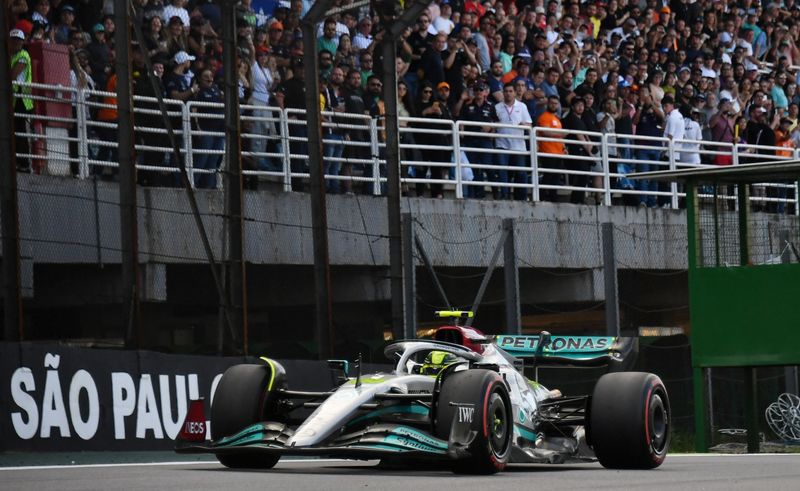Within any group of friends who dine out together, people likely have different budgets, different appetites and different attitudes toward shared expenses.
You may be one of those people who, for the sake of expediency, is happy for everyone to split things evenly.
But what about when the meal is decidedly uneven? You may realize you’re not too psyched to subsidize your buddy’s Porterhouse and three martinis when you just had a salad.
Then the check comes, and everyone freezes. Who is going to cover what? Or worse: Your friends are all chucking their cards in when you wanted no part of the bottle of Dom Perignon they ordered.
“The last thing you want is a situation when the bill arrives at your table,” Daniel Post Senning, co-author of “Emily Post Etiquette, The Centennial Edition,” tells CNBC Make It.
Here are three strategies etiquette experts recommend to ensure that you can split a meal without hurting anyone’s feelings — or finances.
Communication is key: ‘Sooner is better’
Say you’re a vegetarian out with an omnivorous group and the plan is to share a bunch of small plates. Or maybe you’re a non-drinker out with a boozy crowd. If you’re worried you’re going to foot a non-proportional part of the bill, speak up early, says Senning.
“The key to good etiquette is good communication,” he says. “Sooner is better.”
That means voicing any concern you have about splitting the check before you put your order in. “Hey, I’m wondering how we’re planning to split this up — anyone have any ideas?” Senning proposes as a possible script. Or, “I’m going to keep things really small tonight, so I’m going to ask for a separate check.”
When the bill comes: ‘We should be discreet advocates for ourselves’
Maybe you had every intention of splitting things evenly when you sat down, but the bill became increasingly uneven as the meal went on. When the server approaches your table with the check, address them directly, says Diane Gottsman, an etiquette expert and owner of the Protocol School of Texas.
“Don’t look at your friends or your neighbor at the table,” she says. “Say, ‘I’m covering these two’ — that way you’re telling the server, not the table.”
If it’s a group you’re close with, feel free to tell your friends directly, Gottsman says. Either way, communicating your intentions clearly and politely is the best way to avoid resentments or misunderstandings.
“We should be discreet advocates for ourselves — for both our comfort levels and our budgets,” Gottsman says.
Settling up with friends: Find ‘the ideal sweet spot’
Peer-to-peer payment apps, such as Venmo and Cash App, have made it easier than ever to equitably divide a bill, especially at places where it’s a hassle to split the check. Often, one person covers the total and asks their fellow diners to pay back their fair share.
As easy as this set-up may seem, it introduces another wrinkle etiquette-wise: lending money.
Some 61% of U.S. adults have made a personal loan or paid for a group expense with the expectation of being paid back, according to a recent survey from CreditCards.com. Among them, 59% have reported a negative experience in the form of losing money, harming relationships or getting into physical altercations.
If a friend of yours is generous enough to pay a group bill, try to pay them back as soon as possible, says Thomas Farley, an etiquette expert and author of the “Mealtime with Mister Manners” column on Today.com.
“People probably have their phones out anyway,” he says. “You can pay while you’re walking out of the restaurant. Get it off your plate, off your mind, and pay it right away.”
And make sure you’re paying the right amount. “Cover your costs, including tax and tip,” says Gottsman. “They’re not going to come back to you and say you were $6 short. That person is the one who could end up being short-changed.”
If you’re the one who covered for the group, don’t harangue your friends for the money. “The ideal sweet spot is paying people back before they ask you,” says Senning. “The money gets returned before it becomes an imposition on the person who lent it.”
That means it may come across as rude should you invoice your friends on the way to the parking lot, before they have a chance to pay you back. “Let it breathe for a minute,” says Senning.
And if a couple days go by before you get your money back, reach out to your friends, ideally face to face or over the phone, to remind them what they owe. Don’t be afraid to bring up an exact dollar figure. “It’s not ‘would you mind’ or ‘I’m sorry, but,'” says Gottsman. “Be direct and friendly.”
Want to earn more and work less? Register for the free CNBC Make It: Your Money virtual event on Dec. 13 at 12 p.m. ET to learn from money masters like Kevin O’Leary how you can increase your earning power.
Don’t miss: 3 in 5 Americans have made this money move—but it’s ‘not a good idea,’ says lending expert


